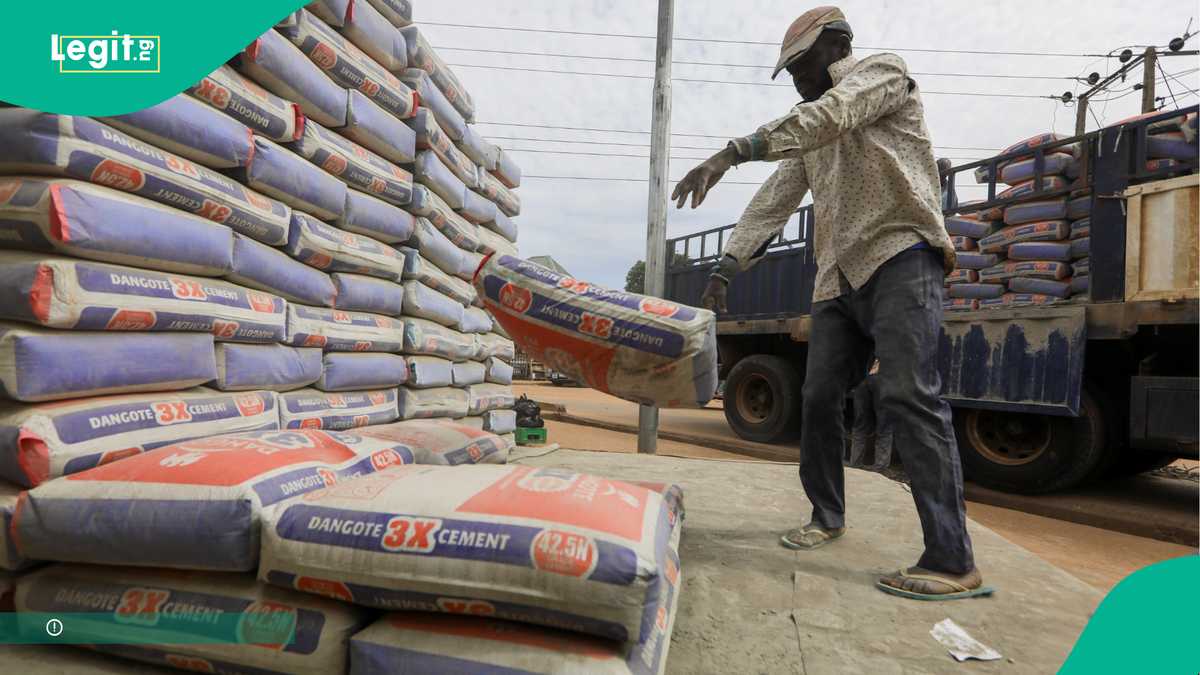Rabiu: Dangote, BUA Groups Will Stabilise Cement Prices for FG Projects - THISDAYLIVE
•Move targeted at supporting Tinubu’s economic, infrastructure programmes
•Says granting strategic imports frustrates food hoarding, stabilise prices
Dangote and the BUA Groups have agreed to stabilise the price of cement without any increase in the near future for all contractors handling construction projects under the Renewed Hope Agenda of the Federal Government.
The Renewed Hope Housing projects, which include – Renewed Hope Cities, Renewed Hope Estates, and the Renewed Hope Social Housing Programme, among others, are a comprehensive Federal Government initiative designed to deliver affordable and inclusive housing for Nigerians nationwide.
Speaking to newsmen at the State House, Abuja on Thursday after meeting with President Bola Tinubu, Chairman of BUA group, Abdul Samad Rabiu, said the two companies have agreed to support President Tinubu’s initiative on addressing the huge housing deficit in the country.
His words: “We have decided. Alhaji Aliko Dangote of Dangote Cement approached me, and I concurred with him that we should do everything to support Mr President Renewed Hope Agenda, we have decided that we are going to freeze the price of cement for any contractor that is involved with the renewed hope project, or projects”.
He further explained “What it means is that any company or anybody that is involved or that is doing a project that is under the Renewed Hope, the price of cement will be frozen. There will be no increase for the foreseeable future.
“We are doing that to support mister president’s renewed hope initiative. And that is something that Alhaji Aliko Dangote actually proposed. I must say, I must give him credit, and I concur with him. So we have agreed. We are going to do that.
“We are going to send out the letter sometime next week to the ministry. And I also want to commend the Minister of Works, Dave Umahi, for the initiative he took to ensure that all the roads are concrete. Because concrete roads are more durable. They take much longer, you know, in terms of durability and the price is going to be cheaper than even bitumen,” Rabiu said.
He noted that cement prices in Nigeria, despite inflation and forex challenges, remain relatively competitive by international standards.
“Even at N10,000 per bag, that’s about $120 per ton, which is in line with global pricing,” he explained, adding that high production costs due to increased energy and spare parts expenses—mostly paid in dollars—have not deterred manufacturers from backing government projects.
To further drive this initiative, BUA’s Managing Director, Yusuf Binji, has been appointed Chairman of the Cement Manufacturers Association of Nigeria (CEMAN), tasked with coordinating industry-wide compliance on price stability for Renewed Hope infrastructure projects.
Rabiu also revealed a broader sectoral reform aimed at strengthening capacity in the construction industry.
Cement manufacturers have agreed to contribute N20 to N30 per bag to revive the Cement Technology Institute of Nigeria (CTIN), generating about N15 to N20 billion annually.
The funds will be used to train artisans and bridge the skills gap in construction.
“We’re revamping CTIN not just to train artisans, but to sustain the gains we’ve made in local cement manufacturing,” Rabiu stated.
According to him, Aliko Dangote will continue as chairman of the CTIN, while Mangal Cement’s Alhaji Dahiru Mangal has been newly admitted to both CEMAN and CTIN.
On the food front, Rabiu also reported progress in stabilizing prices of essential staples through BUA Foods’ aggressive supply-side interventions.
He praised President Tinubu’s foresight in approving temporary duty waivers last year for key food imports, which allowed companies like BUA to bring in wheat, maize, and rice, forcing market prices downward.
“Rice is now about N60,000 per 50kg bag, down from N110,000 last year. Flour has dropped to N55,000 and maize to N30,000. This was made possible by the President’s bold six-month waiver policy, which disrupted hoarding and brought relief to consumers”, Rabiu said.
He explained that strategic imports by BUA undercut the hoarding practices of speculators who stockpiled local paddy to drive prices up post-harvest.
“Those hoarders are now losing money because we crashed the price with available stock,” he noted.
As part of industry-wide reforms, the Rice Millers Association has pledged to discourage hoarding of paddy and maintain stable market supplies.
“We now have enough rice to last through the year. Even when the harvest starts, farmers will get fair prices, but hoarders won’t be able to manipulate the market”.
Rabiu commended President Tinubu for his commitment to economic stabilization and infrastructure growth, and assured continued private sector support.
“Mr President was satisfied with our report. He encouraged us to do more, and that’s exactly what we intend to do,” he said.













